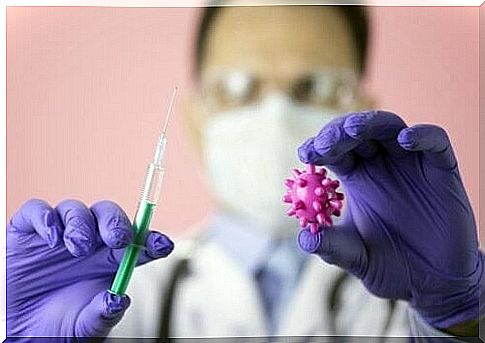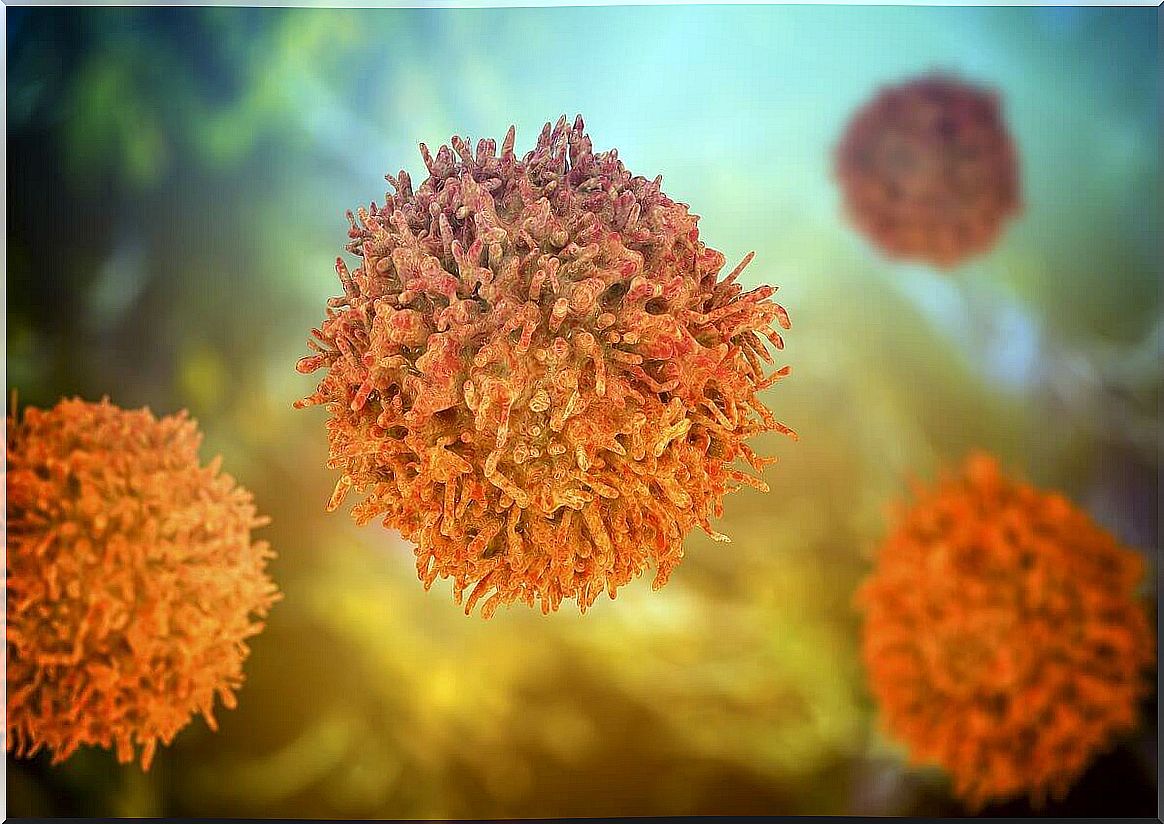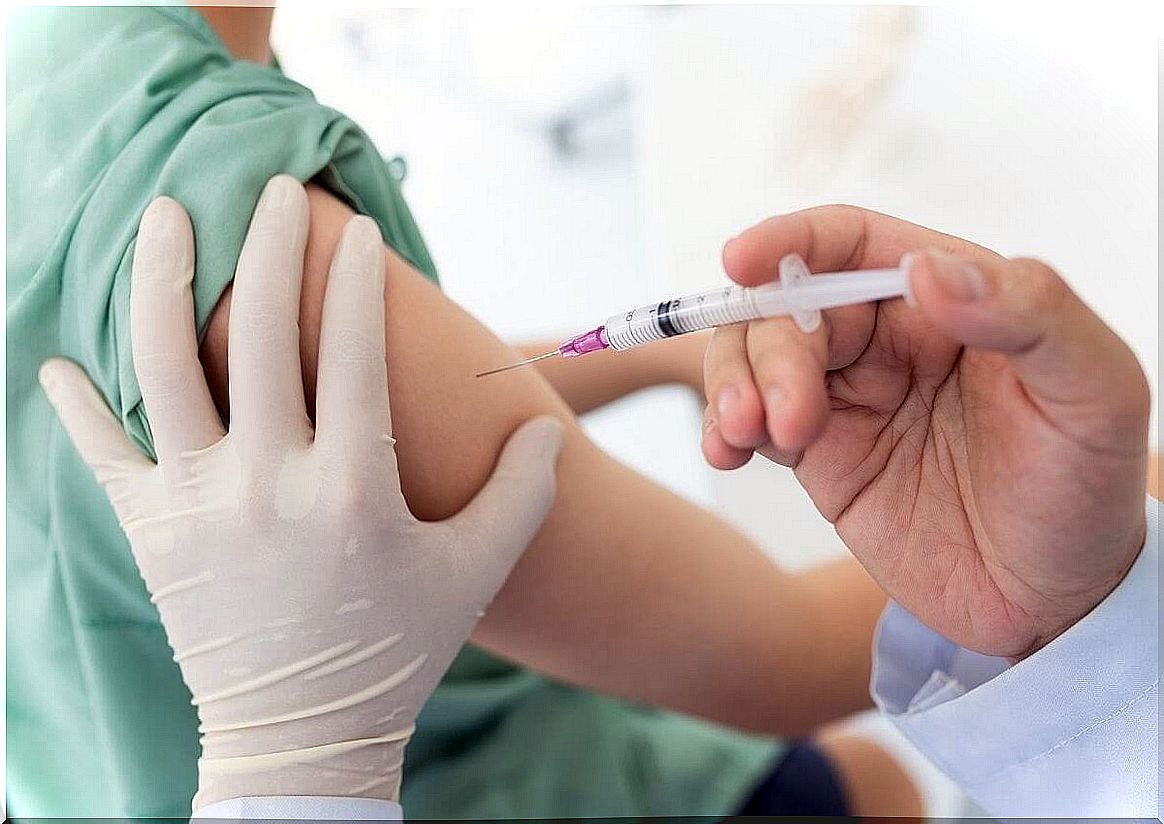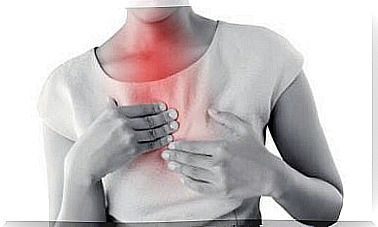What Is Acquired Immunity?
The immune system is the best ally when it comes to dealing with illnesses. It is composed of an innate and an acquired component. Do You Know How Acquired Immunity Works?

Both the innate and acquired immune systems are essential for optimal health. But what exactly is acquired immunity and how is it strengthened over time? Answering these questions is essential for a disease-free everyday life. We’ll go into more detail in this article.
Signs like persistent colds, recurring fevers, and recurring bacterial infections over time can indicate a weakened immune system.
According to the American Academy of Allergy, Asthma, and Immunology, having more than three sinus infections or more than two antibiotic treatments per year indicate immune problems.
Biological barriers
The human body has containment barriers in addition to the immune system. These are divided into three types:
- Primary barriers: According to various studies, the skin is the first barrier to contain possible pathogens. The lipids and keratin are elements in its composition that make the epidermis a real protective barrier against viruses and bacteria.
- Secondary barriers: When the primary mechanisms fail, neutrophils and macrophages (white blood cells) are responsible for enveloping and destroying pathogens. This is known as phagocytosis and is a clear example of a secondary barrier.
- Tertiary barriers: T and B lymphocytes recognize many structures produced by pathogens and inactivate or destroy them effectively.
This biological barrier distinction is essential as it allows us to understand that when we talk about the adaptive immune system, we are dealing with a tertiary biological barrier.

What is Acquired Immunity?
Acquired immunity is defined as a group of highly specialized cells and systemic processes that eliminate or prevent disease-causing threats. According to this volume, which specializes in immunology, only vertebrates have this system.
Its function is to specifically identify germs in order to be able to fight them quickly and effectively. While it may seem surprising, we can find that this biological barrier has a memory as the response to the same pathogen becomes stronger and stronger.
Elements that make up the acquired immunity
The effectors of this protective system are T lymphocytes and B lymphocytes (blood leukocytes), which are produced in the thymus and bone marrow, respectively.
Without the innate immune system, one cannot understand what is acquired. According to various sources, it is the cells of the innate system that process the antigens (substances from viruses and bacteria) and present them to the lymphocytes so that they act accordingly.
In order not to complicate matters, let us now only highlight the two most important elements of lymphocytes:
- Each type of lymphocyte has a receptor for each antigen presented by the pathogen.
- This information is replicated, ie repeated, in each new generation of these cells, thus creating an even more effective defense system against every wave of infection.
Symptoms of weakened immunity
As mentioned at the beginning of this article, there are several signs that arouse suspicion when the acquired immune system is not working as it should. These include the following:
- More than two antibiotic treatments per year
- More than four ear infections a year
- Development of two pneumonia in short periods of time
- Three or more episodes of chronic sinus infection per year
- Need for preventive antibiotics to reduce the risk of infection
- Develop severe infections from common bacterial diseases
If these requirements are met, it is extremely important that the patient undergo a medical examination immediately. Finally, an immunologist reviews the results and diagnoses the underlying cause of the immunosuppression.
How can the acquired immune system be strengthened?
As we have seen in this article, the most effective way to strengthen this tertiary barrier is nothing more than exposure of the organism to pathogens. That doesn’t mean we’re trying to get sick. This is precisely the reason why vaccines were developed.
According to the World Health Organization (WHO) , vaccines are preparations containing weakened or dead forms of harmful microorganisms that help stimulate antibodies (receptors for the lymphocytes mentioned above) when introduced into the human body.
The acquired immune system responds to these stimuli by destroying and remembering the potential threats contained in vaccines, even if they do not cause real harm to the patient. If the actual pathogen is present, the lymphocytes recognize it immediately before an infection begins.

Learn more about vaccinations: Allergy vaccinations: questions and answers
What to consider with acquired immunity
Acquired immunity is an extremely important tertiary biological barrier that repeatedly protects humans from a wide variety of pathogens. It is therefore essential to find out about the vaccination schedules in the respective country or region and to strictly adhere to them.
Vaccines not only protect us by promoting the specialization of the adaptive immune system. In addition, they create herd immunity that protects the weakest and sickest.








